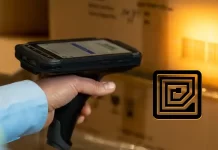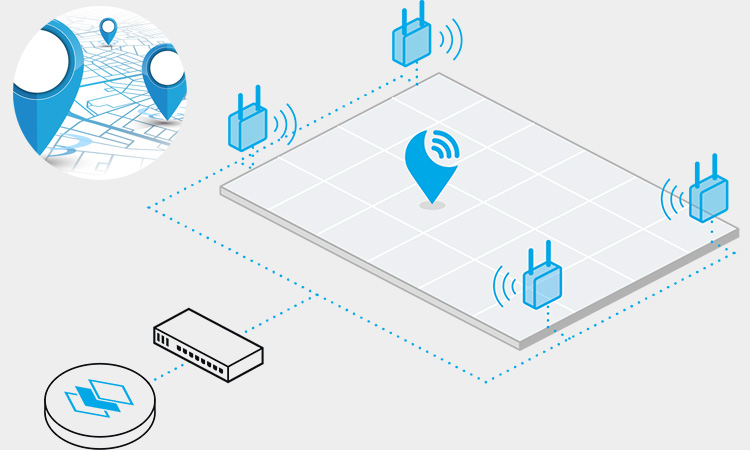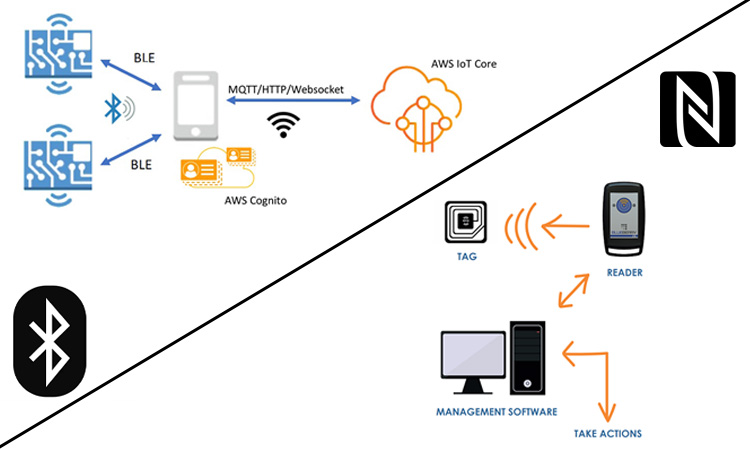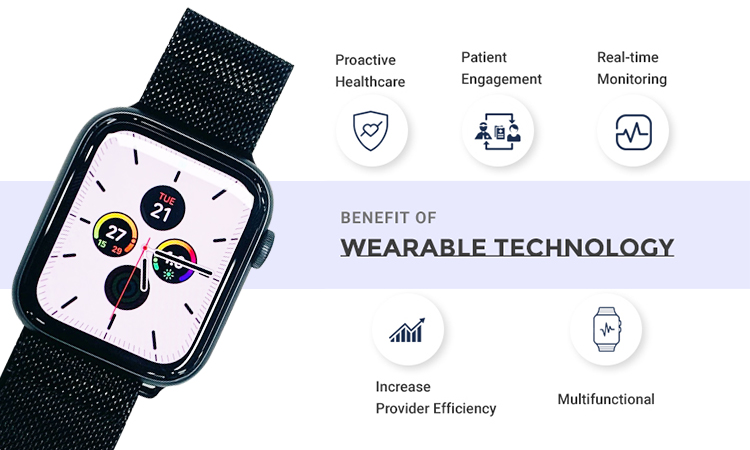In recent years, logistics has faced a complex market environment. Consumers demand efficient, convenient, and comprehensive logistics services. To meet the needs of customers, operators have to seek a solution. It needs to help companies improve efficiency and visualize data throughout the process. The solution must also be implemented with low operating costs. Therefore, the emergence of intelligent logistics technology offers hope for companies. It builds new logistics systems by using artificial intelligence (AI), machine learning (ML), virtual geography (VG), autonomous driving (AV), and Internet of Things (IoT) technologies. They can greatly improve the efficiency of visualizing logistics processes. In this paper, we study smart logistics and discuss the definition of smart logistics, technology application, improvement of logistics services, and logistics cost savings.
What is Intelligent Logistics?
Intelligent logistics systems can turn massive data into visualized data. This makes it easy for companies to track, plan and optimize the entire logistics process. Smart logistics systems make it easy to visualize so manufacturers can better locate delivery points. It also helps to improve customer satisfaction further and increase profitability.
- Automation: Intelligent logistics systems can automatically search, determine and predict the best routes and distribution methods. It can maximize the optimization of logistics processes in the intelligent industrial supply chain, greatly improving the efficiency of enterprises.
- Scalability: Intelligent logistics solutions can support a variety of logistics service models. It is suitable for different sizes of intelligent industrial production and operations and can provide scalability support according to customer needs. It meets the after-sales service needs in various complex production environments, thus eliminating delays and uncertainties in old management processes. It can also help companies significantly improve their overall operational performance.
- Traceability: Intelligent logistics track and record logistics information. It allows manufacturers to quickly identify and track the exact location of goods when necessary. It also helps manufacturers respond to logistics order requirements when needed. Traceability technology provides an efficient record of transactions. It helps companies trace the information of each shipment. It remedies the incomplete and disconnected information in traditional logistics management models. It also turns fragmented and opaque logistics management into an effective management process.
- Logistics Tracking: Logistics tracking technology is the basic technology of the smart logistics industry. It can help logistics service providers to monitor and manage the data of the logistics process in real-time. This includes “warehouse tracking,” “transportation tracking,” “delivery tracking,” etc. In addition, it can also monitor the movement of goods. In addition, it can also monitor the quality of goods, security, etc.
- Driverless: Driverless technology is also important for the smart logistics industry. It can help logistics service providers to reduce the number of drivers, avoid traffic crimes and increase driver productivity.
- Robotics: Robotic automation technology for more efficient material management, shelf management, warehouse transportation, etc. It can greatly improve work efficiency, save human resources and increase the economic benefits of enterprises.
Smart logistics is important for the smart industry to realize the future. It can optimize the logistics process in the supply chain of the smart industry to the maximum extent. It enables logistics visualization, automation, scalability, and traceability. It enables fast arrival and efficient after-sales service. It can also significantly help enterprises improve their economic efficiency, thus promoting the transformation of the smart industry.
Leading the Way in Next-Generation Logistics Technology
Smart logistics technology is particularly powerful and can make logistics processing and control more accurate and intelligent. This makes the logistics industry more competitive and allows it to maintain a healthy state of development. It is particularly good in logistics transportation, packaging, distribution, cargo transfer ports, and shipment delays. Smart logistics technology enables logistics operations organizations to meet customer needs more effectively. It improves service reliability and timeliness, enhancing economy and efficiency. Intelligent logistics also enables dynamic analysis of inventory levels, optimized order sequencing, and logistics routing. It can further improve the efficiency and popularity of the entire logistics system.
Just What Advantages can Intelligent Logistics Bring to the Logistics Industry?
Achieve Intelligent Monitoring

Modern intelligent logistics technology uses sensors and software. They combine warehouses, vehicles, and production units with back-end software. It can monitor and capture various logistics data in real time (e.g., warehouse inventory, cargo status, receipt and dispatch time, and distance). It provides data visualization reports and analysis for intelligent monitoring and management.
Improve the Efficiency of Logistics
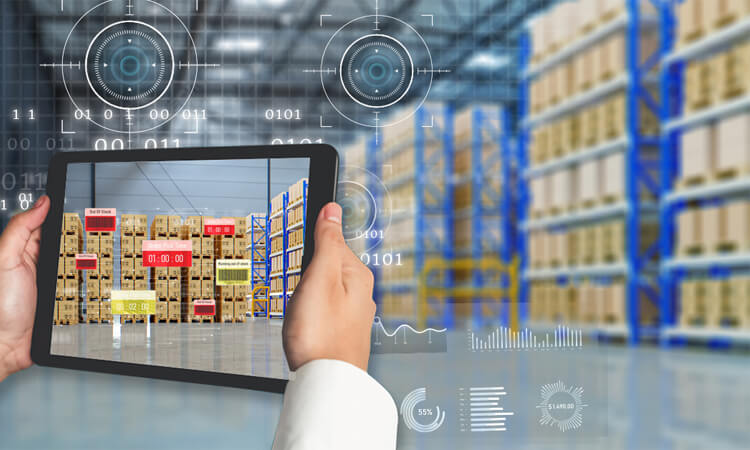
Intelligent logistics technology can collect logistics data faster and more accurately for processing and analysis. It can efficiently achieve logistics management and provide a reference basis for logistics companies. Intelligent logistics can help them adjust their plans quickly and improve the speed of initial task execution. In addition, intelligent logistics solutions can monitor errors, omissions, and original mistakes in logistics and distribution in real time through IoT technology. It can handle problems more efficiently and reduce task delays.
Reduce Operational Costs

Intelligent logistics can significantly reduce labor costs in the logistics industry. It can also reduce the shortage of management and planning while effectively using resources and improving the availability of logistics systems. In addition, intelligent logistics can realize automatic driving, improve the safety and efficiency of drivers, and further reduce operating costs.
Intelligent Logistics Technology
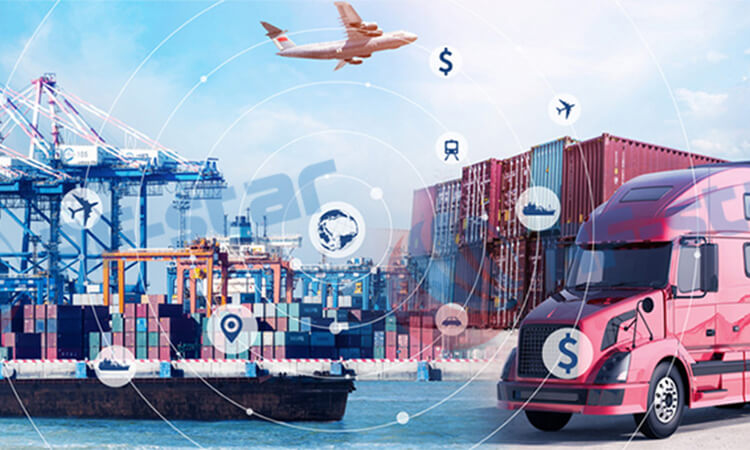
Intelligent logistics technology is mainly applied to vertical fields such as vehicle intelligence, inventory intelligence, loading and unloading familiarity, etc., to realize logistics services’ optimization and automation system. Intelligent logistics technology applications can help enterprises achieve one-stop intelligent management of supply chain procurement, distribution, transportation, storage, etc.
For example:
- Realize ultra-remote real-time scheduling monitoring and management based on IoT technology. It can improve vehicle safety and avoid wasting capacity.
- Intelligently allocate goods according to customer needs, reduce inventory and reduce manual operations.
- Automate inventory efficiency optimization according to customer logistics needs. It also further improves the economic efficiency of logistics.
- Intelligent loading and unloading robots to maintain cargo and speed up the loading and unloading process. It can make full use of cargo transportation time.
How to Achieve Intelligent Logistics?
In order to achieve smart logistics, you need to invest in the following technologies.
- Internet of Things (IoT): IoT can collect data from the logistics process. It will transmit to the real-time monitoring center to speed up the implementation of the logistics process.
- Machine learning: Machine learning can effectively process and analyze various information in the logistics process. It will also automatically adjust the route to derive more accurate logistics results.
- Automated vehicles: Automated vehicles can automatically complete all logistics services. Such as warehouse loading and unloading, vehicle dispatching, transportation, cargo distribution, etc., significantly improve the logistics utilization rate.
Application Cases of Logistics Intelligence
Today, intelligent logistics has become mainstream. Its application cases are increasing, such as Baidu Dada intelligent distribution system. This system can realize a new generation of intelligent distribution modes and automate the distribution process. It reduces distribution time and improves distribution efficiency. It can flexibly respond to changes in cargo weight, delivery address, and destination map range. It can complete the transportation and distribution of goods efficiently.
Another example is the Intel Foundation’s investment, which supports Intel’s smart logistics reform strategy. You can use it to develop the world’s leading smart logistics technology to enable companies to complete logistics transportation more efficiently. It also further improves cargo security, flexibility, and trustworthiness.
The Impact on Smart Logistics
With the development of technology, smart logistics is changing the way we work. Smart logistics technology can greatly improve logistics efficiency and reduce the cost of logistics operations. Reduce the risk of a logistics security breach of trust. At the same time, smart logistics also helps to protect the environment, reduce the pollution and adverse effects that may be caused to the environment, and improve our living environment.
The Future of Intelligent Logistics
Smart logistics is already being used on a large scale, but it will continue to accelerate in the coming years. We expect to see more efficient and reliable logistics services in the future. And urban logistics solutions that are more embedded in smart logistics. As smart logistics technology evolves, it will significantly change the existing logistics system. It can improve business productivity and service levels and provide a better logistics experience to customers.
Future Trends and Opportunities
There is a vast scope for the application and implementation of intelligent logistics. With the continuous improvement of data and algorithms, their accuracy and reliability are also increasing. In the future, intelligent logistics will provide competitive services to more industries, including retail, logistics, and the Internet of Things.
In addition, logistics intelligence offers diverse growth opportunities. The development of technicians in the use of low-cost Internet of Things, logistics intelligence analysis, and other transformations are increasingly important.
An intelligent logistics system has many advantages. In addition, it has many of the more common technical challenges. For example, collecting large amounts of data requires a large amount of storage space to support it. It is achieving efficient data processing, which requires high-speed hardware architecture. Developing a logistics management platform requires a lot of technical effort to be invested. In addition, the logistics system needs to have secure logistics management. And reliable and secure links to ensure system data security, etc.
Although the existing technical challenges exist, you can use some technologies to address them. For example, big data analytics, artificial intelligence, the Internet of Things, and smart hardware. Moreover, the future development of smart logistics is related to the global logistics application environment, development planning, and the advancement of related technologies. In the future, more novel applications of smart logistics will play a greater role in the logistics industry.
With the rapid development of technology, intelligent logistics technology can effectively improve the visualization efficiency of logistics. It can also reduce operating costs. You can use intelligent logistics technology for daily management within the enterprise. It can also effectively solve complex industry problems and become an important driving force for the development of the logistics industry. It provides more efficient and convenient logistics services for consumers.
About Intelligent Logistics Problem
-
How can intelligent logistics help businesses improve inventory management?
Intelligent logistics can help businesses improve inventory management by providing real-time visibility into inventory levels, allowing businesses to optimize and reduce stockouts. This can help reduce carrying costs and improve supply chain efficiency.
-
What role does automation play in intelligent logistics, and how does it impact logistics operations?
Automation significantly contributes to intelligent logistics by reducing manual labor and streamlining logistics operations. This can help businesses reduce costs, improve efficiency, and reduce errors in logistics operations.
-
How can intelligent logistics help businesses reduce their carbon footprint and promote sustainability?
Intelligent logistics can help businesses reduce their carbon footprint by optimizing transportation routes, reducing fuel consumption, and minimizing waste in logistics operations. This can help businesses promote sustainability and reduce their environmental impact.
-
What types of software are used in intelligent logistics, and how do they integrate with other logistics systems?
Various types of software are used in intelligent logistics, including transportation management systems (TMS), warehouse management systems (WMS), and enterprise resource planning (ERP) software. These systems can integrate with each other to provide real-time data and insights into logistics operations.
-
How can intelligent logistics help businesses mitigate the risks associated with supply chain disruptions?
Intelligent logistics can help businesses mitigate the risks associated with supply chain disruptions by providing real-time visibility into logistics operations, allowing businesses to identify and address potential disruptions quickly. This can help businesses reduce the impact of disruptions and maintain continuity in their supply chains.
-
What are the cost implications of implementing intelligent logistics, and how can businesses justify the investment?
The cost implications of implementing intelligent logistics can vary depending on the size and complexity of the logistics operation. However, businesses can justify the investment by considering the potential cost savings, increased efficiency, and improved customer service resulting from implementing intelligent logistics.
-
How can intelligent logistics help businesses improve decision-making processes and optimize logistics operations?
Intelligent logistics can provide businesses with real-time data and insights into logistics operations, allowing them to make data-driven decisions and optimize logistics operations. This can help businesses improve efficiency, reduce costs, and improve customer service.
-
How does intelligent logistics impact labor and workforce management in the logistics industry?
Intelligent logistics can impact labor and workforce management by reducing the need for manual labor and increasing the demand for skilled workers who can operate and maintain logistics automation systems. This can create new job opportunities and require businesses to invest in training and development programs.
-
What potential ethical considerations are related to intelligent logistics, and how can they be addressed?
Potential ethical considerations related to intelligent logistics include data privacy, worker displacement, and the impact on local communities. These considerations can be addressed by implementing ethical guidelines and standards, engaging with stakeholders, and investing in responsible business practices.
-
What are some real-world examples of businesses successfully implementing intelligent logistics, and what lessons can be learned from them?
Examples of businesses successfully implementing intelligent logistics include Amazon, Walmart, and DHL. Some lessons that can be learned from these examples include the importance of data analytics, the role of automation, and the need for a strategic approach to logistics management.




